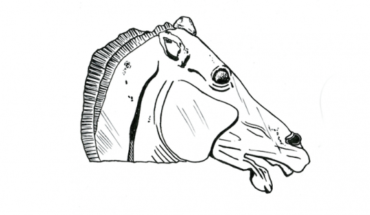Music therapy is not widely known amongst healthcare professionals but it is widely used in clinical settings, often alongside conventional treatments to improve wellbeing for people in various environments, whether it is the elderly, secure hospital units or schools.
Music is a universal tool for helping to change and lift mood. In public places, such as certain London Underground Stations, classical music is played to enhance a calm mood across a busy, crowded environment where people might otherwise get stressed. Healthcare practitioners frequently use music to stimulate a better ambient mood, for example in a secure hospital unit. However the same piece of music will affect individuals in different ways.
Healthcare practitioners frequently use music to stimulate a better ambient mood, for example in a secure hospital unit. However the same piece of music will affect individuals in different ways.
Music is also a tool to promote memory and life review. Pre-recorded music has associations to times and places in our lives. If we hear a song from a different time in our life it can bring back all those old feelings. It may be very romantic, sad, happy or funny. Music can make us feel nostalgic and it can therefore make us laugh or cry, feel warm and loving or uncomfortable and full of regret.
When we work therapeutically with recorded music it is important to understand the client’s taste and let him choose music that has significant meaning to him, rather than imposing a personal choice that may mean nothing to him, this may otherwise simply be perceived as controlling.
When working with elderly people, if they hear a favourite old song this can bring back happier times and they can then often recall the lyrics which may not have been thought about in ages – then the individual can enjoy sharing their memories. This is important in helping the individual to have a sense of continuity across their life-span and then to orientate them to all that they have done decade by decade.
Whether music is played on a hospital ward, in a Zumba class, a Pilates class, a religious ceremony, or a military cavalcade with men and horses – music underpins the movements and pace of events through the tempo, rhythms, mood and harmonies.
Running and exercise releases endorphins that are known as ‘happy’ hormones.
A play list of suitable tracks can energize and then calm people, for example during physical exercise classes followed by relaxation and meditative music to finish.
Music Therapy is used to help people who suffer with Parkinson Disease. Try singing a gentle tune if you need to help a person with Parkinson’s to walk. The chances are that their shuffling gait may extend towards becoming proper steps if you find a suitable mood, tempo and melody.
Music can also be used in a manipulative and negative way to whip up a fanatical group consciousness in a crowd, as if they have lost their individual will to choose. Alternatively, to bond together such as at a football match, when part of the crowd may start to act as one in chanting for their team.
Learning a Musical Instrument can lead to global mental improvements. Practising a musical instrument is associated with enhanced verbal ability, the ability to work things out and improved motor co-ordination. This is because a lot of components and hours of discipline are involved in becoming accomplished on an instrument. The degree of success depends on many factors including the teaching techniques, the levels of parental support for the child, or for an adult learner to have both a witness to his efforts as well as undisturbed practice time. I have taught my instrument, the oboe, all my adult life and I apply some neuro-scientific therapeutic principles to this teaching.
Musical Improvisation in music therapy can be used for improving and sustaining mental health. The greatest form of improvised music is Jazz, and we can learn a lot about the structure of improvised music from great musicians such as Miles Davis. Music Therapy in the United Kingdom is a masters level training and central in this model is jointly creating improvised music that fits the mood, time and place. The music therapist is a skilled musician but she is there to help the natural creative abilities of any individual start to come through. This is wonderful because all patients can have a go – even if they have never seen a real musical instrument. This experience can be exciting rather than frightening when it is offered sensitively and with respect.
Music Therapy is particularly effective for people who live with schizophrenia; it helps with mental organization because music alone can cross the bridge between the two hemispheres of the brain, thereby integrating emotional responses and cognitive thinking processing. Once a person has expressed their inner feelings non-verbally through jointly-creating music within a trusting therapeutic relationship –then they may be able to more easily recognize what they are feeling and start to find the right words to be able to talk about their problems and thereby receive help from others.
- Performing arts in community NHS treatment - 28th December 2017
- Dealing with fear of terrorism and death - 3rd August 2017
- Music therapy in clinical settings - 21st June 2017







